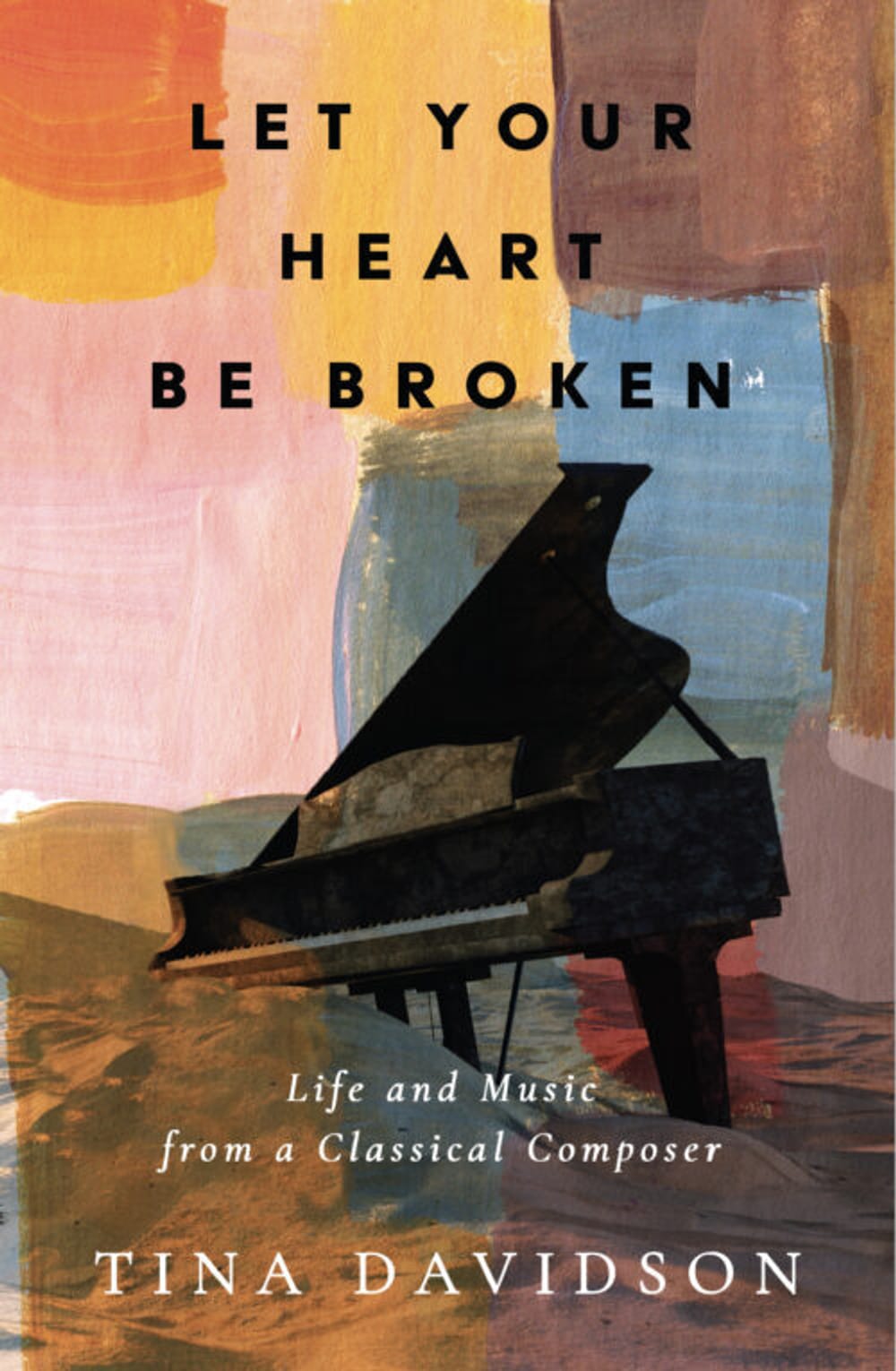Stay in the Loop
BSR publishes on a weekly schedule, with an email newsletter every Wednesday and Thursday morning. There’s no paywall, and subscribing is always free.
An esteemed Philadelphia composer tells her story
Let Your Heart Be Broken: Life and Music from a Classical Composer, by Tina Davidson

The title of composer Tina Davidson’s Let Your Heart Be Broken is a quote from the poet Stephen Levine, who offers the thought as a possible answer to the eternal question, what is the meaning of life? The heartbreak in Davidson’s life, and the motif that flows through and under the narrative of this memoir, occurred when she was just three and a half years old. She was living in Sweden with her adoptive parents when her birth mother arrived to remove her from the only family she ever knew.
Remarkably, despite the inevitable emotional time bombs, she established a loving and graceful relationship with her mother, who was still alive at the time of this book’s publication. She describes her journey to this epiphany in the poignantly dignified penultimate chapter of the book, “Forgifenesse,” using the Middle English spelling of the word as if to suggest the timelessness of this essential human quality.
A colorful coming-of-age
Davidson writes with a bravely blunt honesty that portrays her naked and pained soul. She has endured struggles with creativity, an unsuccessful marriage, a life-threatening medical emergency, and, most saliently, a byzantine web of traumatic familial relationships. But she also relates a wildly colorful coming-of-age. Her parents, now including her stepfather Loren Kenneth Davidson, an ardent adventurer, traveled with her to Germany, Israel, and Turkey, where he was once forced to defend his family from rock-throwing nomads. Along the way, she encountered Ernest Hemingway, James Baldwin, Carl Sandberg, and other literary luminaries. It is easy to assume that Hemingway inspired her prose style, with its exquisite concision and emotional intensity.
Eventually, Davidson settled in Philadelphia in 1976, where she married, had her only child, Cassandra, and was reintroduced to her birth father, the renowned scientist George Britton Chance, who gave her a job in his lab at the University of Pennsylvania. She spent the next quarter of a century here and gradually became a fixture of the new music community. Her colorful description of her early days in the city incisively captures the late 20th-century flavor of West Philadelphia.
The music in the words
Perhaps, it is missing the point of this memoir to complain that Davidson talks so little about music in any substantive way. We get a strong sense of the composer’s moods and environments as she creates her art, but nothing of the mechanics or matters of style. After all, her career blossomed during a transformative period in the world of modern music, as the straitjacket of atonality, the language that was the standard in academia (including at Davidson’s own alma mater, Bennington College) was cast off with giddy abandon. She makes a brief, tantalizing reference to those invigorating days when sometime in the mid-1980s, she realizes that “my music becomes more and more tonal. My dissonance has protected me.” But that is where she leaves the discussion.
Davidson was at the center of such activities in Philadelphia, especially with her early involvement with Relâche, the new music band that began life in a former wedding-gown store on South Street known as the Painted Bride (Relâche continues to this day). She briefly recalls the ensemble’s thrilling energy under the direction of Joseph Franklin. Admittedly, my disappointment at this descriptive omission is personal; I knew Franklin well and marveled at his entrepreneurial brashness. I even knew Davidson herself in those days and once interviewed her in the backyard of my South Philadelphia rowhouse.
But, of course, there are plenty of other books about the politics and modalities of modern music. The real music here is in the words, which cascade across these pages with a gentle, precise rhythm reflected in Davidson’s luminous musical scores. Let Your Heart Be Broken is not the story of a solitary artist obsessed with a craft but rather of the life that informs the art: a humanistic, worldly spirit, creating beauty amid an often-maddening, yet ever-hopeful, world.
What, When, Where
Let Your Heart Be Broken: Life and Music from a Classical Composer. By Tina Davidson. Newark, Ohio: Boyle and Dalton, March 14, 2023. 324 pages, hardcover; $26.44. Get it here.
Sign up for our newsletter
All of the week's new articles, all in one place. Sign up for the free weekly BSR newsletters, and don't miss a conversation.
